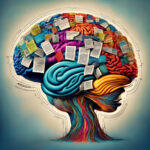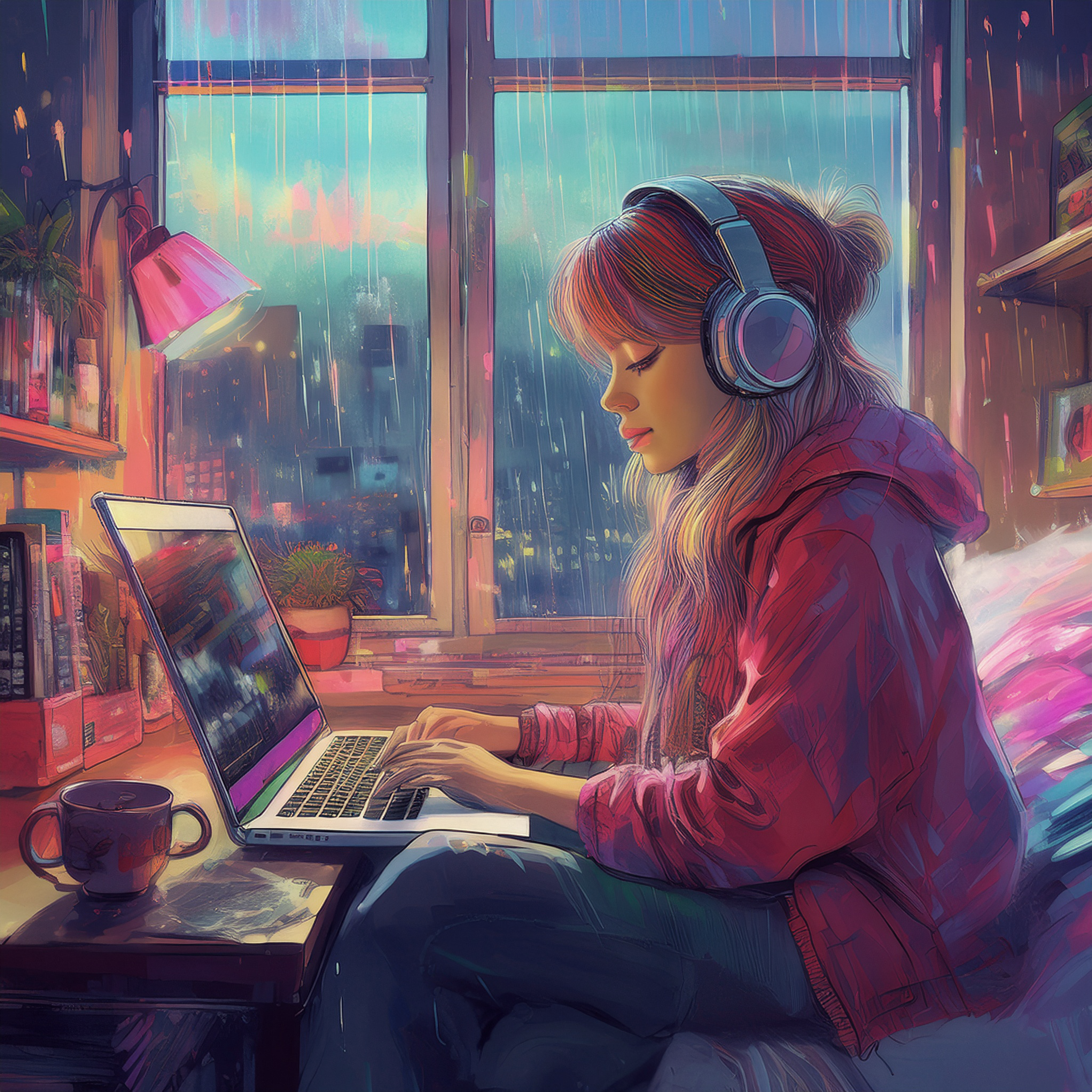Lo-fi beats have become much more than background noise for late-night study sessions or cozy YouTube streams. For many in the neurodivergent community, especially those with ADHD, lo-fi music offers a unique blend of calm and focus that is hard to find elsewhere. At Spectrum Astrolabe, we are always searching for tools that support neurodiverse minds, not just the latest fads, but approaches grounded in real science and lived experience.
How Lo-Fi Music Works
Lo-fi music is known for its mellow, repetitive beats, gentle imperfections (think vinyl crackle or rain sounds), and, importantly, a lack of lyrics. This combination creates a soundscape that is soothing without being intrusive. But why does this matter for ADHD?
Research suggests that lo-fi music can help regulate the brain’s default mode network, a system involved in mind-wandering and introspection, which often leads to distraction for people with ADHD. The steady rhythm and predictability of lo-fi reduce cognitive overload, making it easier to stay on task. As one Oxford Scientist article put it, “Lo-fi acts as a kind of aural cocoon, buffering the listener from sudden noises and distractions.”
The absence of lyrics is key. Without words to process, the brain is not pulled away by speech, allowing for deeper focus. Many people with ADHD describe silence as almost deafening, while music with lyrics is too distracting. Lo-fi hits that sweet spot in between.
Key Benefits of Lo-Fi Music for ADHD
Let’s break down the main ways lo-fi can support focus and well-being for those with ADHD:
- Boosts Dopamine and Motivation: Music, especially familiar tunes, can trigger dopamine release, a neurotransmitter tied to motivation and focus. Since many with ADHD experience dopamine dysregulation, this boost can make a real difference in mood and task initiation.
- Reduces Distractions: The predictable, consistent sound of lo-fi helps mask background noise and prevent sensory overload. This is particularly helpful in busy environments, like a crowded café or a noisy office.
- Enhances Mood and Emotional Stability: The calming rhythms of lo-fi can uplift mood and reduce anxiety, which often co-occur with ADHD. One study found that listening to relaxing music improved mood in adults with ADHD, offering a non-pharmacological option for emotional regulation.
- Supports Flow State: Lo-fi’s repetitive beats can help listeners enter a state of “hyperfocus,” where time seems to melt away and productivity soars. As Sarah, a graphic designer with ADHD, shared: “Since I discovered lo-fi, I’ve been able to work for hours without getting distracted. It’s like the music creates a bubble around me, keeping the chaos at bay.”
- Improves Sleep Quality: Many people find that lo-fi’s mellow tempo and gentle sounds help them wind down at night. The subtle static or environmental sounds can act as white noise, masking disruptive sounds and promoting restful sleep.
Where Lo-Fi Music Can Help
Lo-fi is not just for studying or working. Its benefits extend to many areas of daily life:
- Study and Work: Lo-fi provides a stable auditory backdrop, making it easier to concentrate on complex tasks. Many students and professionals use dedicated lo-fi playlists to set the mood for deep work.
- Sleep: The calming effect of lo-fi can help those with ADHD who struggle to fall asleep, especially when paired with a relaxing bedtime routine.
- Relaxation and Stress Reduction: Lo-fi’s gentle ambiance can ease anxiety and help with transitions between tasks. Michael, a writer with ADHD, put it this way: “Silence is deafening. Lo-fi fills that space perfectly, giving my brain just enough stimulation to stay on track without overwhelming me.”
- Social Situations: Playing lo-fi in the background during gatherings or meetings can lower social anxiety and make interactions feel less overwhelming.
- Exercise and Movement: While lo-fi is often associated with relaxation, it can also support focus during low-intensity workouts or yoga, offering a steady rhythm without the hype of more energetic genres.
Lo-Fi vs. Other Genres
Classical music is often recommended for focus, and research suggests it may have a slight edge over lo-fi in boosting concentration. Both genres share key features: moderate tempo, lack of lyrics, and calming frequencies. However, some people find classical music too engaging or emotionally charged, while lo-fi’s simplicity makes it easier to tune out and get into a flow state.
Here is a quick comparison:
| Feature | Lo-Fi Music | Classical Music |
|---|---|---|
| Lyrics | No | Rare |
| Predictability | High | Moderate |
| Emotional Intensity | Low | Can be high |
| Background Ambience | Common (rain, vinyl) | Rare |
| Focus Enhancement | High | Slightly higher |
Incorporating Lo-Fi into Daily Life
If you are curious about adding lo-fi to your routine, here are some practical tips:
- Create Personalized Playlists: Curate playlists for different moods or tasks. For focus, stick to lyric-free tracks. For relaxation, look for lo-fi with environmental sounds like rain or gentle wind.
- Use Music as a Background: Play lo-fi softly while working or studying. Noise-cancelling headphones can help if you are in a noisy space.
- Take Music Breaks: Use short lo-fi breaks to reset your mind between tasks. This can help with transitions and prevent burnout.
- Time Management: Try timed playlists to help structure work sessions. For example, a 30-minute playlist can signal when it is time to take a break.
- Evening Wind-Down: Incorporate lo-fi into your evening routine to help signal to your brain that it is time to relax and prepare for sleep.
- Pair with Exercise: Use lo-fi during gentle movement or stretching to keep your mind engaged without overstimulation.
Real-Life Example
Let’s bring this home with a quick story. Last fall, during a rainy afternoon in Seattle, we visited a local neurodiversity-friendly café. The barista, who also has ADHD, told us, “We keep a lo-fi playlist running all day. It is subtle enough that customers can chat or read, but it keeps the space feeling calm. I have noticed people linger longer and seem less stressed when it is playing.” The gentle hum of conversation, the clink of mugs, and the soft crackle of lo-fi beats created an atmosphere that felt both lively and peaceful.
What the Research Says
- A 2025 review in Frontiers in Psychology mapped out seven neurocognitive mechanisms through which music can help manage ADHD symptoms, including executive function enhancement and arousal regulation.
- Studies have found that both active (playing music) and passive (listening) music therapy can reduce ADHD symptom severity and improve attention.
- Lo-fi’s similarity to white noise may also help, as white noise has been shown to improve working memory and focus in children with ADHD.
Final Thoughts
Lo-fi music is not a magic bullet, but it is a flexible, accessible tool that many in the ADHD and neurodivergent community have embraced. Whether you are seeking to block out distractions, boost your mood, or just create a little peace in a chaotic world, lo-fi might be worth a listen. As one listener shared on Reddit, “It feels like a kind of ambiance. Like I am in a movie, and that weirdly helps sometimes with flow. Like, I have to be productive now, because… aesthetic.”
If you are curious, there is no harm in giving it a try. Maybe you will find, as many others have, that lo-fi is the missing piece in your focus toolkit.
Resources
Looking to dig deeper or try new tools? Here are some hand-picked resources for exploring lo-fi music, ADHD, and focus strategies. We’ve split them into online resources and other helpful materials like books and therapy tools.
Online Resources
- Lofi Girl – YouTube 24/7 Stream
A legendary lo-fi hip hop radio stream, perfect for study, work, or relaxation.
lofi hip hop radio beats to relax/study to – YouTube - Spotify: ADHD Focus Music Lofi Playlist
Curated tracks designed for focus and calm.
ADHD Focus Music lofi – Spotify - SoundCloud: Lofi Focus Music for ADHD
A playlist tuned to 432 Hz, designed for attention and relaxation.
Lofi Focus Music for ADHD: 432 Hz – SoundCloud - Mini ADHD Café – YouTube
A video and channel dedicated to ADHD-friendly study music and advice.
ADHD Study Music [Lofi – Chill] – YouTube - The ADHD Lifestyle – Streaming Service Reviews
In-depth reviews and personal experiences with music streaming services for ADHD, including Focus@Will, Brain.fm, and more.
The best Music for ADHD Concentration reviewed – The ADHD Lifestyle - Focus@Will
A science-backed music streaming service with channels tailored for ADHD and productivity.
Focus@Will - Brain.fm
Music designed using neuroscience to promote focus, relaxation, and sleep.
Brain.fm - Restackio – Music Therapy Apps for ADHD
Overview of music therapy apps and how they can help with ADHD management.
Music Therapy Apps For ADHD | Restackio
Other Resources (Books, Therapy, and More)
- Finally Focused
By Dr. James Greenblatt and Bill Gottlieb
A holistic approach to ADHD, combining medication, nutrition, and lifestyle.
Find on Amazon - The Mindfulness Prescription for Adult ADHD
By Dr. Lidia Zylowska
An 8-step mindfulness program for adults with ADHD.
Find on Amazon - Fast Minds
By Craig Surman, Tim Bilkey, and Karen Weintraub
Practical strategies for managing ADHD in adulthood.
Find on Amazon - Taking Charge of ADHD
By Russell A. Barkley
A comprehensive guide for parents of children with ADHD.
Find on Amazon - The Explosive Child
By Ross W. Greene
Collaborative problem-solving for parents of children with challenging behaviors.
Find on Amazon - A.D.H.D. 2.0
By Dr. Edward M. Hallowell and Dr. John J. Ratey
Updates on ADHD research and actionable advice for adults.
Find on Amazon - Trauma-Informed Music Therapy: Theory and Practice
By Elizabeth H. Davis
Explores trauma-informed approaches in music therapy, relevant for neurodivergent individuals.
Find on Psychological Therapy Books - Free eBook: ADHD & Music Therapy
By Noel Anderson
Downloadable resource for using music to support children with ADHD.
Download from Anderson Music Therapy - Music Therapy Archives
A collection of recommended books on music therapy for various needs, including neurodiversity.
Music Therapy Archives
If you have a favorite playlist, book, or app that helps you focus, let us know! We are always adding to this list to support the neurodivergent community.
Citations
- Calm. (n.d.). Benefits of lo-fi music. Retrieved from https://www.calm.com/blog/benefits-of-lofi-music
- Calm Blog. (n.d.). The benefits of lo-fi music and how it can help you focus.
- Counsel & Heal. (2024, January 16). Why lo-fi music is good for ADHD brains. Retrieved from https://www.counselheal.com/articles/41145/20240116/why-lo-fi-music-good-adhd-brains.htm
- Luo, Y., & Zhang, H. (2025). Rhythms of relief: Perspectives on neurocognitive mechanisms of music interventions in ADHD. Frontiers in Psychology.
- National Institutes of Health. (2023). Music and ADHD research. Retrieved from https://pmc.ncbi.nlm.nih.gov/articles/PMC10221503/
- NeuroLaunch. (n.d.). Lofi music: Focus & calm for ADHD. Retrieved from https://ppl-ai-file-upload.s3.amazonaws.com/web/direct-files/attachments/35099098/56cc4ba5-0895-4194-8ca4-8ed72f8d1885/paste.txt
- Psychology Today. (2024, January 12). Want to improve your focus with ADHD? Try listening to lo-fi. Retrieved from https://www.psychologytoday.com/gb/blog/mythbusting-adhd/202401/want-to-improve-your-focus-with-adhd-try-listening-to-lo-fi
- Psychology Today. (2025, February 20). Lo-fi music for focus: A game-changer or just a trend? Retrieved from https://www.psychologytoday.com/gb/blog/empowered-with-adhd/202502/lo-fi-music-for-focus-just-a-trend-or-a-game-changer
- PsalmLab. (2024, August 26). Is lo-fi good for ADHD? Retrieved from https://psalmlab.net/2024/08/26/islofigoodforadhd/
- PubMed Central. (n.d.). Listening to Mozart improves current mood in adult ADHD. Retrieved from https://www.ncbi.nlm.nih.gov/pmc/articles/PMC
- PubMed Central. (n.d.). Listening to white noise improved verbal working memory in children with ADHD. Retrieved from https://www.ncbi.nlm.nih.gov/pmc/articles/PMC
- PubMed Central. (n.d.). The effect of music intervention on attention in children. Retrieved from https://www.ncbi.nlm.nih.gov/pmc/articles/PMC
- Reddit. (n.d.). r/ADHD community experiences. Retrieved from https://www.reddit.com/r/ADHD/
- Scientific Research Publishing. (n.d.). Lofi: Modern concentration.
- Scientific Research Publishing. (2024). Lo-fi music and cognitive function. Retrieved from https://www.scirp.org/journal/paperinformation?paperid=128453
- Swedish Lo-Fi. (n.d.). Therapeutic effects of lo-fi beats for ADHD focus issues. Retrieved from https://www.swedishlofi.com/lofi/therapeutic-effects-lofi-beats-adhd-focus-issues/
- Taylor & Francis. (2024). Music and ADHD study. International Journal of Adolescence and Youth, 29(1), 1-15. Retrieved from https://www.tandfonline.com/doi/full/10.1080/02673843.2024.2388787
- The Oxford Scientist. (n.d.). The science behind lo-fi beats.
- Vaughn College. (2022, October 10). Studying to lo-fidelity: Lo-fi music gets high marks with students. Retrieved from https://www.vaughn.edu/blog/studying-to-lo-fidelity-lo-fi-music-gets-high-marks-with-students/
- Verywell Mind. (2023, December 15). Music to improve focus with ADHD. Retrieved from https://www.verywellmind.com/music-to-improve-focus-adhd-6361057
Revision Notes
- April 2, 2025: Original guide created.
- May 31, 2025:
- Guide fully rewritten to speak with general audiences instead of just parents of children with ADHD.
- Additional Resources section added, with subsections for Online and Other resources, including direct links.
- APA-style citation list thoroughly revised and expanded, including new research and reputable online resources.
- Reference list reorganized in strict APA alphabetical order.
- Transparency and revision notes section added for reader clarity.






